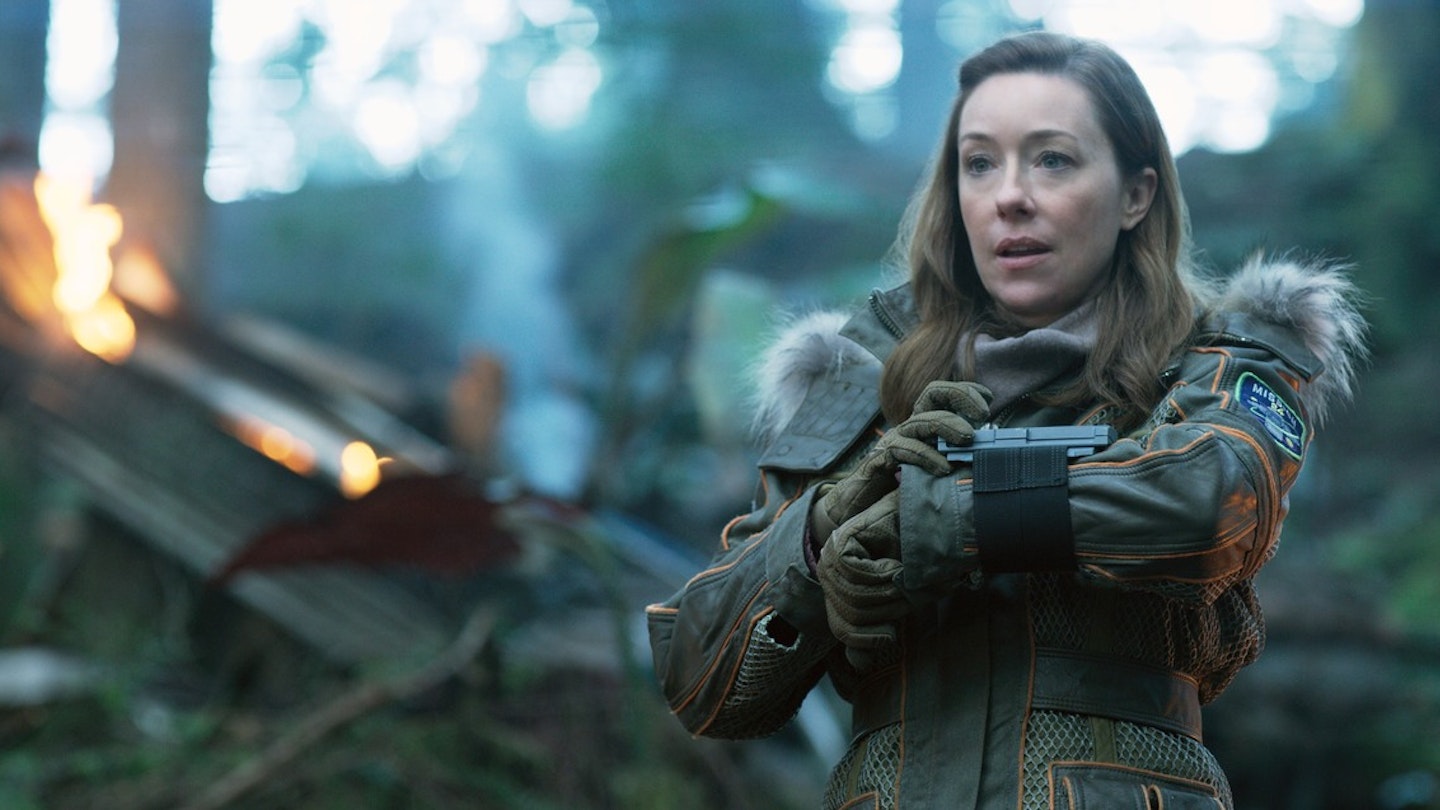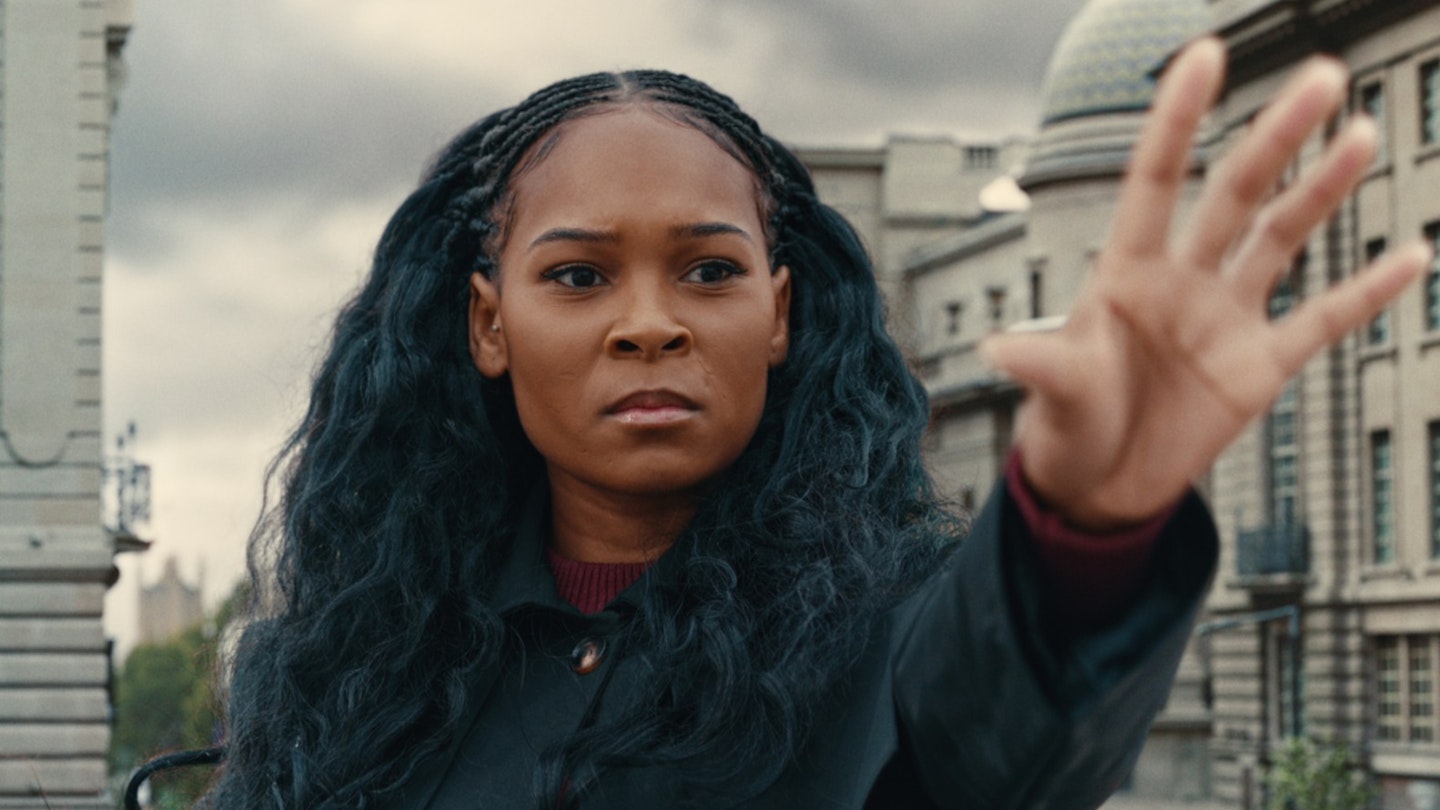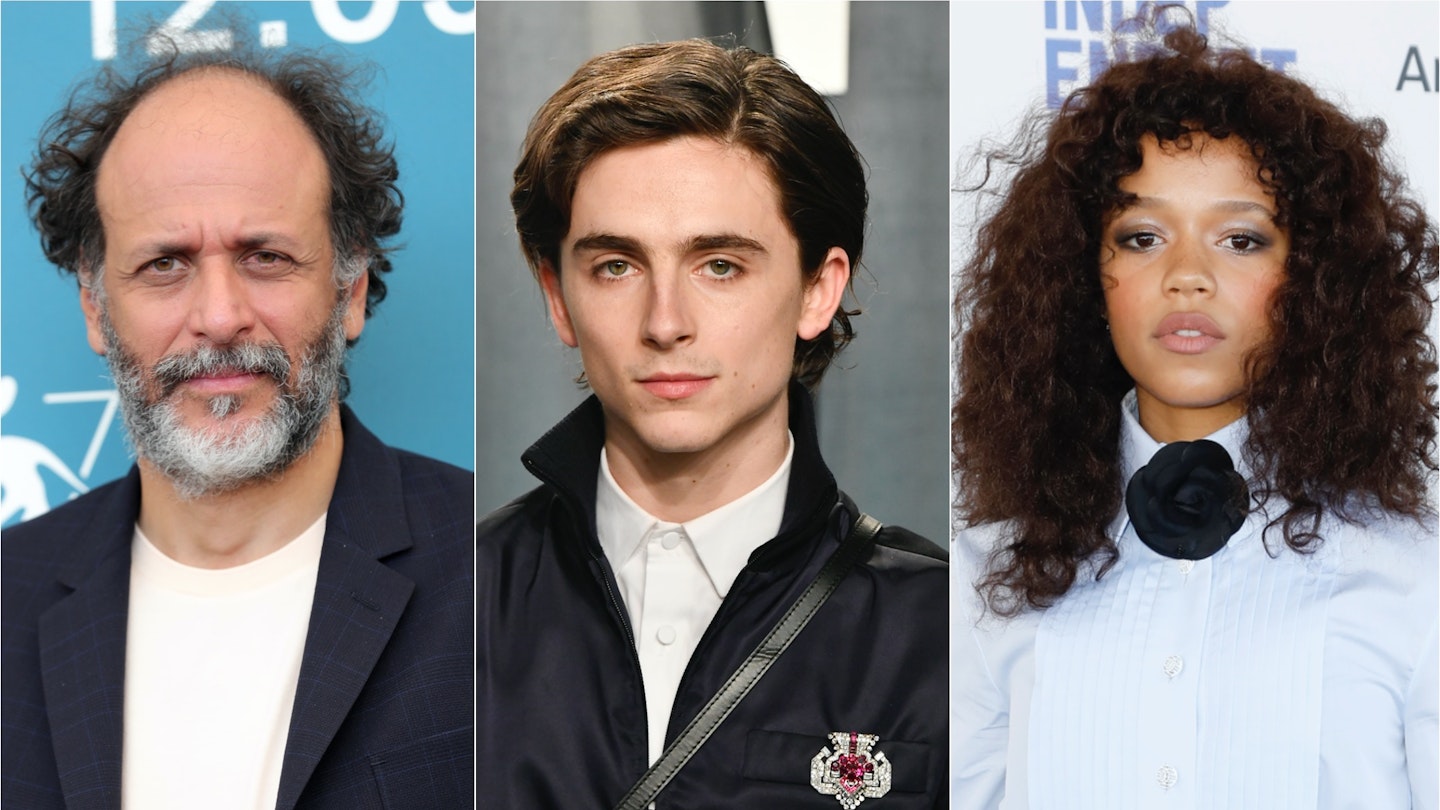Having barely survived crash landing amid the towering, chocolate box glaciers of an alien world, as temperatures plunge Judy (Taylor Russell) is trapped in the ice with only minutes of oxygen left; big-brained matriarch Maureen (Molly Parker) has passed out care of a broken leg, which untrained middle-spawn Penny (Mina Sundwall) has recently had to operate on; and anything pop John (Toby Stephens), hefting around his wounded pride, comes up with is of no use at all. Meanwhile, the youngest, thus far meekest member of the clan (Maxwell Jenkins) has not only been separated from the others but is up a tree in a blazing forest sharing a fragile branch with a confused alien robot of unknown origin. No two ways about it — danger, Will Robinson!
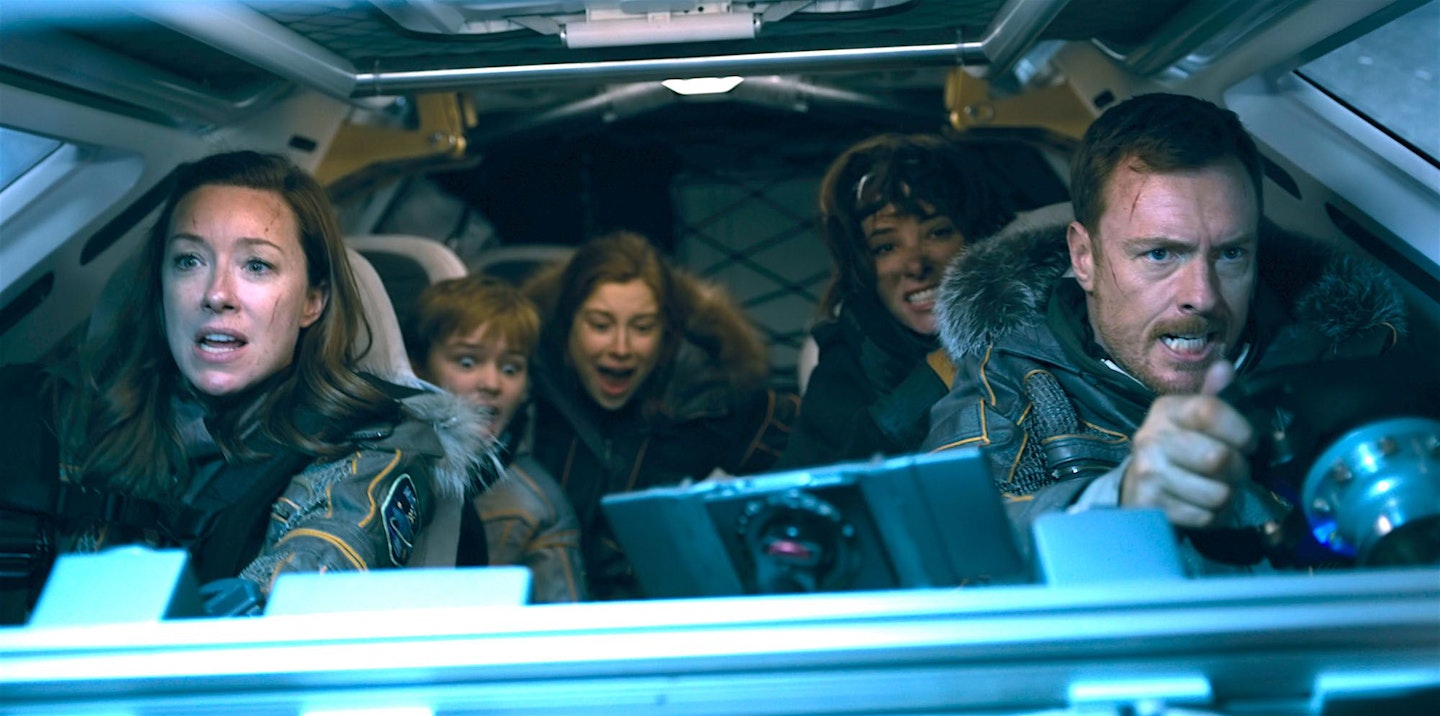
What gives Netflix’s high-end reboot of Irwin Allen’s sixties TV romp — itself a sci-fi spin on Johann David Wyss’ 19th century adventure Swiss Family Robinson — such innocent, head-on pleasure is the fact it is hardly a reboot at all. Developed by Matt Sazama and Burk Sharpless, rather than labouring over the kind of twisty-turny, self-important report on the human condition that demarcates big telly, they have simply reopened the old playbook — a shipwrecked family escape an endless medley of perils in paradise. In this case an unknown planet, trillions of light-years from home that bears an uncanny resemblance to the pine forests within driving distance of well-priced studio space in Vancouver (there are bizarre similarities to Alien: Covenant, but thankfully none of that deadpan, pseudo-profound huggermugger about creation).
Sensibly, gone are the cheesy grins and tin-foil costumes, the uncomfortable emphasis on a white-bread American family unit.
But with the addition of strong production values, the grit of good stuntwork in hardscrabble locations, a fine cast, a hatful of decent directors — including Neil Marshall and Cube’s Vincent Nattali — here is a buoyant commitment to Saturday-morning serial, edge-of-the-sofa thrill for thrill’s abundant sake.
Gone are the cheesy grins and tin-foil costumes, the uncomfortable emphasis on a white-bread American family unit.
Every tribulation met by the Robinsons in this fortuitously habitable but treacherous place unleashes a skilfully overwrought cascade of crisis. Every episode turns hilariously life or death. Tune in next week… Or hang on five seconds if you’re in the market for an easy binge.
Not that we don’t also get plenty of family dysfunction. Stephens’ grumbling, former black-ops type John and Parker’s stubborn super-scientist Maureen are doing a mightily poor job of disguising the fact their marriage was on the skids even before they launched for a fresh start in the colony on Alpha Centuri — where only the best and brightest are given a shot. By the third time the squabbling parents get stranded together to mull over their differences, you start to hope the tar pit will swallow them up.
The forward thrust is only slightly waylaid by flashbacks to pre-expedition Robinson tribulation, the sinister attack on the mothership that landed them and sundry other survivors on this planet (with its own imminent trajectory into the maw of a black hole — but how are they going getaway without any fuel?) and the murky origins of stowaway Dr. Smith (who might not be a doctor at all).
Genders have been smartly flipped for the requisite pantomime nasty to a splendid Parker Posey, who plays Smith’s manipulations as a subtle pathology of survivalist cunning, messing with minds like a stray Hannibal Lecter whose improbably convoluted schemes can run episodes ahead. When oh when will the dopey Robinsons realise she is up to no good?
There is some avoidable mid-season drag. Jettisoning the headlong excitement of Marshall’s marvellous opening two episodes for limp camp politics and slow-burn romances involving both Judy and Penny. Still, giving Ignacio Serricchio’s hotshot Don West, Judy’s luckless paramour, so unashamed a glint of Han Solo’s scoundrel glamour (hey, he’s smuggling whiskey to the new world) leaves no doubt that the series sees itself as a top quality covers band doing riffs on the old greats.
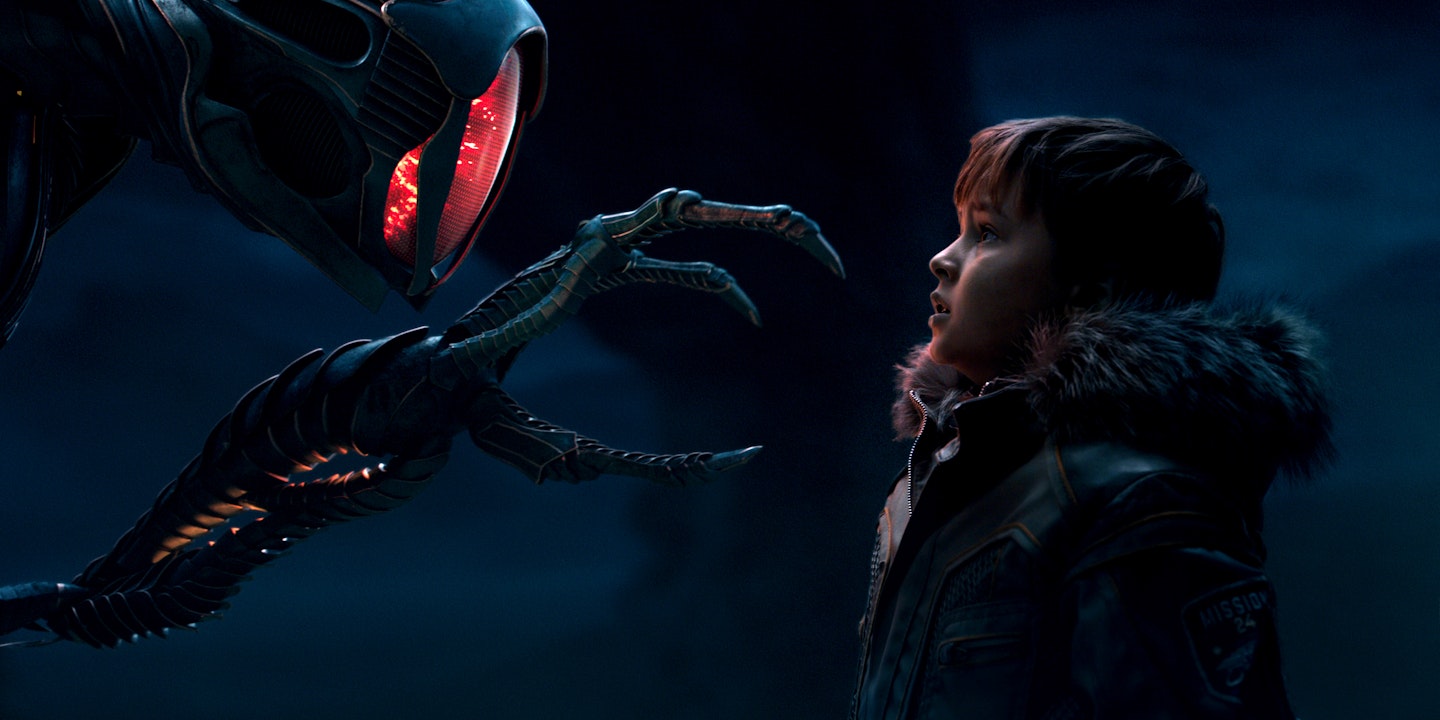
One of the chief triumphs of the new, improved but happily unambitious Lost in Space is that they do very good robot indeed. The sixties clockwork-cute automaton (designed by Robert Kinoshita without venturing far from his iconic Robby the Robot from Forbidden Planet) has been elevated into a mightily impressive insectoid warrior-droid with a glowing oval screen for a face, whereby his limited but telling emotional range is reported via the colour of the bubbling pixels. He (it?) is soon established as the heart of the story. Still warbling that signature line — “Danger, Will Robinson!” —and providing tireless assistance in getting his disaster-prone charges out of their latest, multi-storey snafu —despite the growing suspicion he might be harbouring a dark past — there is something genuinely affectionate in this one boy and his seven-foot killer-robot relationship. It’s like Kes retold with Cylons.
